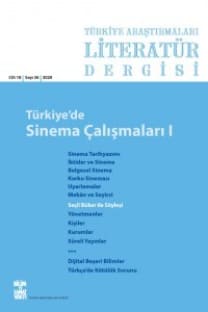Osmanlı Dönemi Fetva Literatürü
Bu araştırma Osmanlı döneminde fetâvâ diye adlandırılan literatürü tanıtmak amacıyla kaleme alınmıştır. Biz bu çalışmada yayımlanmış çeşitli malzeme yanında İslâm Araştırmaları Merkezi (İSAM) Türkiye Kütüphaneleri Veri Tabanı, Milli Kütüphane Türkiye Yazmaları Toplu Katalogu (www.yazmalar.org) ve çeşitli kütüphane kataloglarından yaptığımız genel taramalardan elde ettiğimiz verileri dikkate alarak, kütüphanelerdeki yazma fetva mecmualarından imkân ölçüsünde en az birini görmek suretiyle, fetâvâ literatürünü tanıtmaya çalıştık. Ayrıca modern çalışmalarda söz konusu literatür ile ilgili yapılan eksiklik ve yanlışlıklara da işaret ettik. Çalışmamızda ne fetva kavramı, fetvanın işlevi ve bir fetva metninin oluşumu gibi konuların incelenmesi hedeflenmiş ne de eserlerin bütün yazma nüshalarını tespit etme amacı güdülmüştür. Sadece yazarlarına nispetinin sıhhati gösterilmeye çalışılmış ve içerikleri dikkate alınarak literatür hakkında genel bir fikir verilmek istenmiştir. Zira bu literatür içerik, şekil ve müelliflerinin statüleri bakımından birbirinden çok farklı bir görünüm arz etmektedir. Bazı mecmualarda şeyhülislâmlara, bazılarında müftü, müderris, kadı ve fetva kâtibi gibi âlimlere ait fetvalar; bazılarında ise Arapça eski literatürdeki fetva meseleleri derlenmiştir. Bu çalışma; 160'ı aşkın fetva mecmuasının tanıtımını yapmaktadır. Bu haliyle, şimdiye kadar Osmanlı fetvalarına dair verilen listelerin de en kapsamlısı ortaya konulmuş olmaktadır. Ne var ki bu makale, konuyu tüketmekten ziyade sonraki çalışmalara ışık tutmayı hedeflemektedir.
Fatawa Literature in the Ottoman Period
This study aims to unearth the amount of existing Ottoman fatawa collections. To determine the names of the collections and the collectors, we used catalogues both published materials and online sources, namely, of the Centre for Islamic Studies' (ISAM) Database of Turkey's Libraries and of the National Library of Turkey's Database Search (www.yazmalar.org). Then we checked at least one copy of each book in the libraries of Istanbul, where they are stored overwhelmingly as manuscripts. The primary aims of this article neither examine the concept, function and emergence of fatwa, nor bringing together information of all the manuscripts. Rather it gives emphasis on to dig out the authors of the fatawa books. In addition, I wanted to show, in the article, the shortcomings of contemporary literature. Fatawa literature differs from each other not only in terms of the content and the form of the books but also in terms of the positions of scholars. Some collections included the fatwas issued by the Ottoman Grand Muftis (Sheikh al-Islams) whereas the other some by scholars such as provincial muftis, lecturers at Madrasas (mudarris), judges, and fatwa scribes. Furthermore, while some of these collections are comprised of the actual questions and responses, the other some are the compilation of quotations from the Arabic classical fatawa books. Therefore, within the scope of my article, I tried to classify the books from the perspectives mentioned above. I tried to examine and explore about 160 fatawa collections in this work. I think, It has been the most comprehensive list, among the existing studies, of these collections. However, it does not mean that this article covered all of the Ottoman fatawa books. It should be evaluated just a contribution to the literature for the further studies.
Keywords:
Fatwa/Fatawa Ottomans, naql/nuqul, fiqh, Islam, Law,
- ISSN: 1303-9369
- Başlangıç: 2003
- Yayıncı: Bilim ve Sanat Vakfı
Sayıdaki Diğer Makaleler
Osmanlı Kanunnâmeleri Neşriyatı Üzerine Bir Tahlil
XV. ve XVI. Yüzyıllarda Yaşamış Beş Osmanlı Hukukçusu
Osmanlı Öncesi Türk Hukuk Tarihi Yazıcılığı
Osmanlı Dönemi Fetva Literatürü
F›k›h Tarihi: Osmanl› Hukuk Düflüncesinde Modern Yorumlar ‹çin Yeni Bir Referans Çerçevesi
Kütüphane Rafında Okuyucusunu Bekleyen Bir Yayın: İlm-i Hukuk ve Mukayese-i Kavanin Mecmuası
İslam-Osmanlı Hukukunda Zimmîler
Osmanlı'da Meşrutiyet Öncesi Merkezî Meclisler Literatürü
